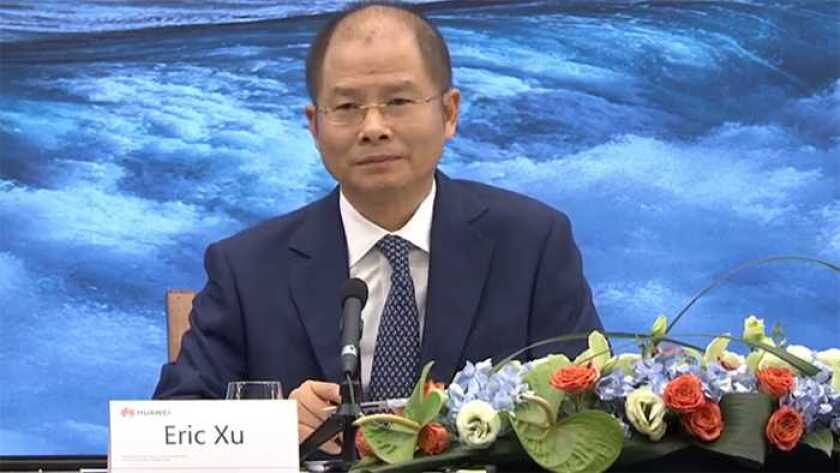The company’s rotating chairman, Eric Xu, accepted today that 2019 “had been the most difficult year for Huawei”, but added “2020 is going to be more difficult. It will be the most difficult for Huawei.”
Xu (pictured) was presenting the Chinese company’s annual results for 2019, when – despite the challenges – it recorded a 19.1% increase in sales to US$123 billion.
Net profit was $9 billion, up just 5.6% on 2018, a fact Xu attributed to the effects of the US embargo. “We had to invest more in R&D to fix the holes,” he told the results conference in Shenzhen.
Xu issued a stark warning to the industry that the embargo, imposed in May 2019, could have a “destructive effect” on the industry, leading to a “catastrophic destruction of the global industry chain”.
The US added Huawei it its entity list, a catalogue of companies that US businesses and citizens are banned from trading with. The US alleges that the company has been including US hardware and software in its products sold to Iran, in defiance of a US embargo, and has also warned of security risks.
This has blocked US hardware and software companies from supplying it. The biggest immediate effect has been that Google cannot offer its Android operating system and access to its Play Store for search, Gmail, maps and other apps. The company is developing Huawei Mobile Services (HMS), its alternative to Android’s Google Mobile Services.
At the same time it is developing its own chips and software, and looking for new sources outside the US embargo.
“I believe many Chinese companies can supply us,” said Xu, as well as companies in South Korea, Japan, Europe and Taiwan.
And he warned of retaliation by the Chinese government, which “will not stand by and watch Huawei being slaughtered on the chopping board”, he said. “If the US government can arbitrarily change the rules that would be the destruction of the global technological ecosystem,” he warned.
Meanwhile he suggested the coronavirus pandemic might be good for Huawei. “The digital economy is outgrowing the rest of the economy” as a result, he said.
Huawei’s presentation was designed to indicate that China is emerging from the pandemic ahead of other countries: neither Xu nor any of his colleagues at the event were wearing facemasks, something that was mandatory until a few days ago.
As China, followed by the rest of the world, emerge from the virus, 5G deployment will accelerate, he said. In 2020 “China’s three operators will complete their planned deployment or go even higher.”






